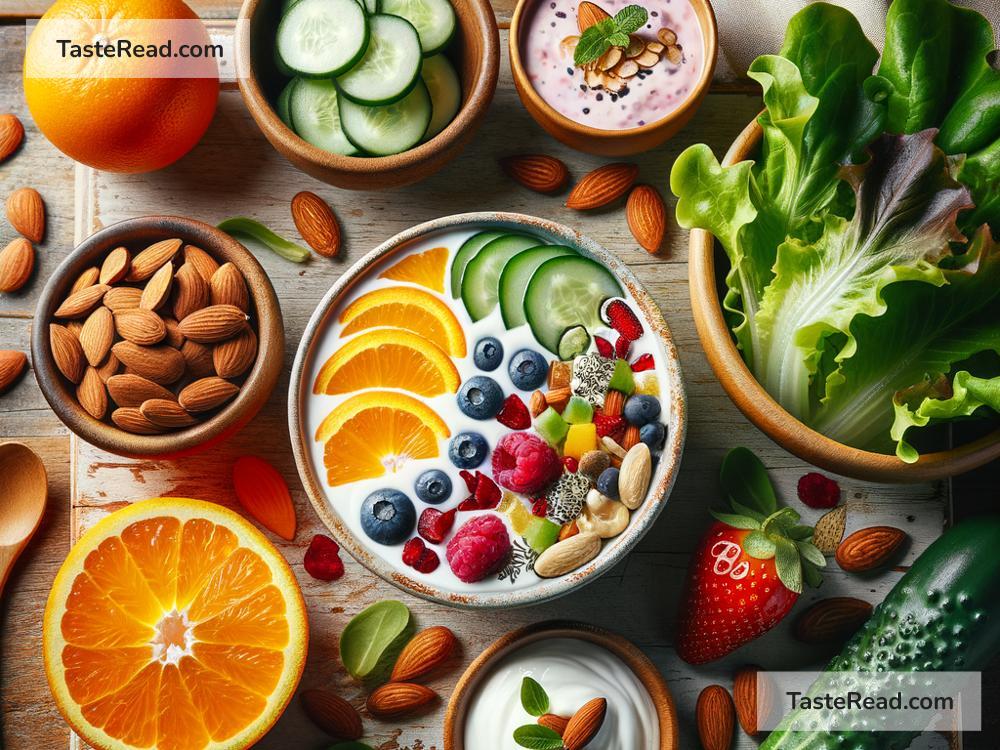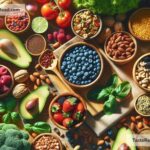Foods That Reduce the Risk of Oral Ulcers
Oral ulcers, also known as mouth sores or canker sores, are painful lesions that form inside the mouth. They can make eating, drinking, and even talking uncomfortable. While oral ulcers usually aren’t serious, the discomfort they bring can disrupt daily life. Thankfully, your diet can play a big role in preventing these pesky sores. Eating the right foods can reduce your risk of developing oral ulcers and speed up recovery if you already have them. In this blog, we’ll explore some simple, effective foods that can keep your mouth healthy and ulcer-free.
What Causes Oral Ulcers?
Before diving into foods that help, it’s useful to understand what contributes to oral ulcers. Some common causes include:
- Stress: Emotional or physical stress can trigger mouth sores.
- Injury: Accidentally biting the inside of your cheek or brushing your teeth too harshly can lead to ulcers.
- Foods: Acidic, spicy, or rough foods can irritate the sensitive lining of your mouth.
- Vitamin Deficiency: A lack of certain nutrients, such as iron, B vitamins, and zinc, can increase your risk.
- Weakened Immunity: When your body’s defenses are low, ulcers may form more easily.
- Other Factors: Hormonal changes, gastrointestinal problems, or allergies can also play a role.
Now that you know the culprits, let’s look at foods that can help keep oral ulcers in check.
1. Leafy Green Vegetables
Spinach, kale, cabbage, and other leafy greens are packed with vitamins, especially vitamin B and iron. Both of these nutrients are crucial for maintaining healthy skin and tissue inside your mouth. Leafy greens also boost your immunity, helping your body fight off infections that may worsen ulcers.
Try adding spinach to your salads, blending kale into smoothies, or steaming cabbage for a nutritious side dish. These can strengthen your body and reduce your chances of developing ulcers.
2. Fruits Rich in Vitamin C
Vitamin C is famous for supporting skin repair and boosting immunity. Citrus fruits like oranges, grapefruit, and lemons are excellent sources of this nutrient, but their acidic nature might be too harsh if you already have an ulcer. Instead, opt for gentler options like kiwi, strawberries, or papaya. They deliver plenty of vitamin C without irritating your mouth.
Tip: If you have active ulcers, stick to ripe, non-acidic fruits and consume them in moderation.
3. Yogurt
Yogurt contains probiotics – the good bacteria that balance the microbiome in your mouth and gut. These beneficial microorganisms can reduce inflammation and promote healing. Yogurt, especially plain Greek yogurt, is soothing and easy to eat, especially when an ulcer is bothering you.
Including yogurt in your daily diet can prevent ulcers and keep your digestion healthy overall. Avoid flavored yogurts that contain added sugars, as too much sugar may worsen irritation in your mouth.
4. Honey
Honey isn’t just delicious; it’s known for its antibacterial and healing properties. When used as a natural remedy, honey can soothe pain from oral ulcers and speed up the healing process. Including honey in your diet can help prevent ulcers by reducing inflammation and fighting off harmful bacteria.
You can drizzle honey over oatmeal, mix it into tea, or even apply a small amount directly to the affected area for immediate relief. Just make sure to choose pure, natural honey.
5. Whole Grains
Whole grains like brown rice, quinoa, oats, and whole wheat bread are excellent sources of B vitamins. Vitamin B12, in particular, is vital for preventing mouth sores and maintaining healthy tissues. Whole grains also provide long-lasting energy and promote overall health, making them a worthwhile addition to your plate.
Switching from refined grains to whole grains can help your body get the nutrients it needs to fight oral ulcers.
6. Foods Rich in Zinc
Zinc is a mineral that plays a key role in wound healing and immunity. Deficiency in zinc can trigger oral ulcers and slow down recovery. Foods like nuts, seeds, lentils, chickpeas, and meat are excellent sources of zinc. Adding a handful of pumpkin seeds to your diet or snacking on roasted chickpeas can deliver the zinc your body needs.
7. Coconut
Coconut is soothing, anti-inflammatory, and gentle on the mouth. Coconut water is hydrating and cooling, while coconut oil has antimicrobial properties that can protect your mouth from irritation or infection. You can drink coconut water regularly to keep your body hydrated and prevent ulcers, or you can apply coconut oil directly to a sore for relief.
8. Plain Water
While not technically food, water deserves a top spot on this list. Staying hydrated is essential for keeping your mouth tissues healthy. Dryness in the mouth can lead to irritation and ulcers, so make sure you’re drinking enough water throughout the day.
Foods to Avoid
To prevent oral ulcers, it’s also important to avoid foods that may trigger them. These include:
- Spicy foods (like chili peppers)
- Acidic foods (like pineapple and tomatoes)
- Hard, rough foods (like chips and toast)
- Excessive sugary or salty snacks
Final Thoughts
Oral ulcers can be uncomfortable, but the good news is that simple dietary changes can make a big difference. Incorporating nutrient-rich, soothing, and anti-inflammatory foods into your daily diet can reduce your risk of developing mouth sores and accelerate healing if you already have them. Combine these food choices with good oral hygiene and stress management to keep your mouth healthy and pain-free.
Remember, if you experience frequent oral ulcers, consult a healthcare professional to rule out underlying conditions. In the meantime, start adding these foods to your meals and enjoy the benefits of a healthier mouth!


